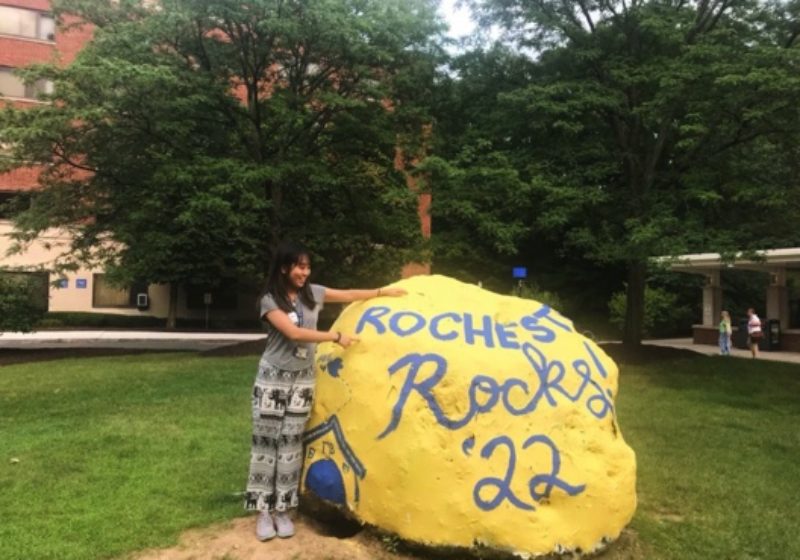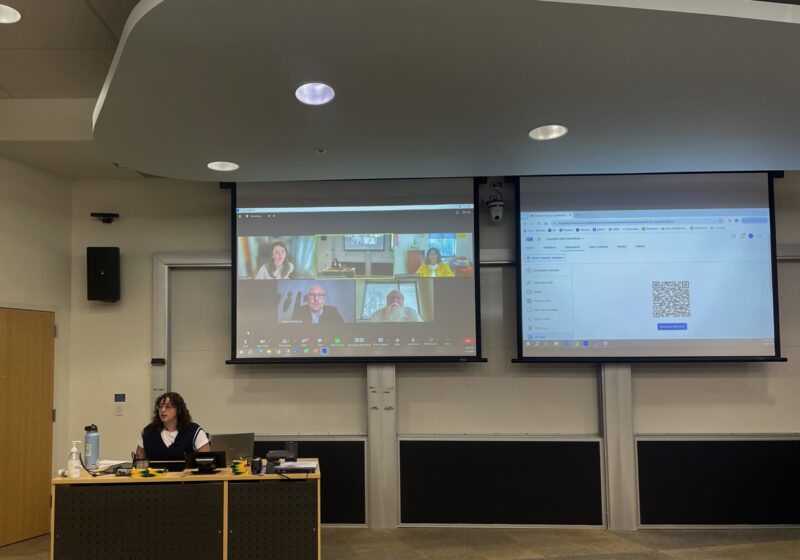Huishan Shi is a senior majoring in Microbiology and minoring in Public Health and Music. When not in class, Shi enjoys playing the piano or spending time with her friends. She has also been an RA since her sophomore year, is currently a peer health advocate, and has been an organic chemistry TA for several semesters. She plans to graduate a semester early this December. “At the beginning, I wanted to double major in music and biology or maybe public health and biology, but after being extremely burnt out taking 28 credits my [first-year] spring, I realized that I wanted to just focus on microbiology.”
Shi became interested in microbiology in high school after she first learned about the immune system. “I remember thinking how amazing it was that our body does so much to protect us from different pathogens. When I came to UR, I knew I wanted to learn more about immunology and I felt that a lot of microbiology courses were geared towards that [interest].”
As a result of her piqued interest in biology, Shi joined the Beck Lab her sophomore spring when the COVID-19 pandemic was in full force. Her project was to study a tight junction protein CLDN1 and its relationship to atopic dermatitis, a dermatological disease that Shi has been struggling with herself. “Studies have found that patients with this [disease] have much less CLDN1. My research focuses on examining the gene expression, cell differentiation, and viral infection of CLDN1 knocked out keratinocytes using CRISPR gene-editing technology, thus to understand the role CLDN1 plays in the pathology of atopic dermatitis.”
“When I joined the lab, I realized how privileged I am and how powerful it is, for me being able to participate in research and studying the illness that has been with me for over 20 years,” Shi added.
However, her hard work in the wet lab has not come easy. “I’ve been dealing with repeated contamination issues with my cell culture, especially this summer. A lot of my data was lost because of this and I had to start everything all over again. And that is very upsetting. It could be inadequate sterile techniques, and my lab and I are currently trying very hard to look for the cause of it.”
She went on to add that, “Working in research is hard; sometimes I will do the exact same experiment several times and get completely different results for each. I will have to continue doing the experiments until the data becomes consistent. However, I learned that troubleshooting is an extremely crucial step in research. That is what makes science and research exciting and interesting. I still remember the joy I received when the assays proved that I successfully performed monoclonal selection to select and grow cells that contained identical gene knockouts. I spent months doing the selection, so it felt really good when it finally worked.”
As a senior, Shi talks about her evolution as a researcher. “Whenever the data is inconsistent, I stop questioning myself or my competence, which I did a lot when I first started research. Instead, I will actively look for the possible causes in the assays and consult with people in my lab. […] I think that was an important lesson for me to learn, to be more confident in myself. I wish there are more opportunities for undergrads to openly share the struggles they have in research, that research is not all about glorious data and publication.”
After graduating from UR, Shi plans to take a year off working as a lab technician before applying to medical school. “My piece of advice is that it is okay to feel challenged. The challenge is what pushes people to grow and do things you might have never imagined you could do. As long as you are persistent and believe in yourself, anything is possible.”





